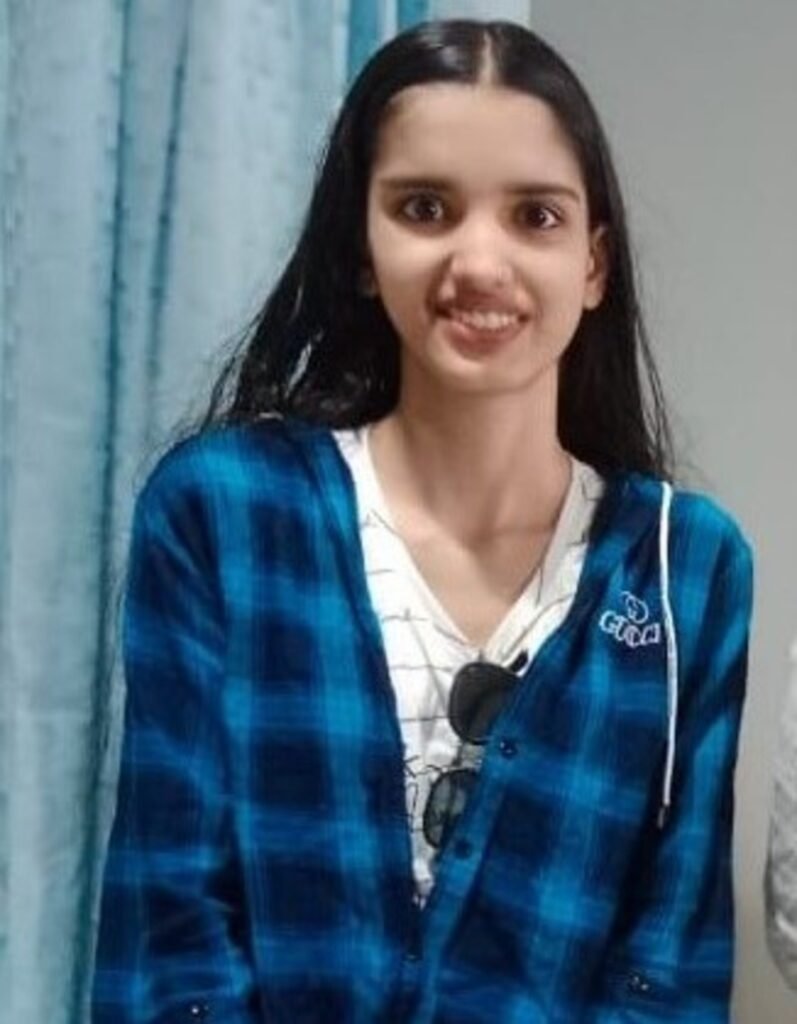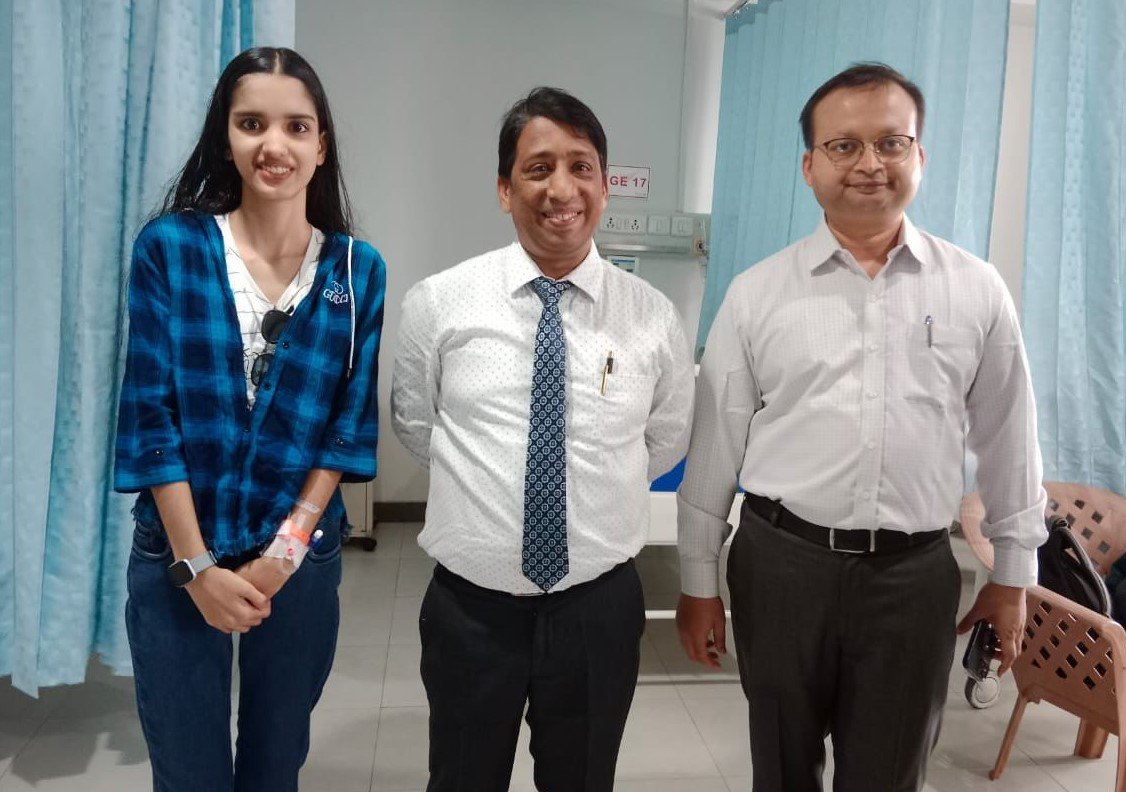Last Updated on August 25, 2024
Wockhardt Hospitals, Mira Road, Mumbai, successfully treated a 17-year-old girl with a severe myasthenia crisis, restoring her health through prompt intervention. She is now able to resume her daily activities and return to college.
“My daughter went through a harrowing experience with a rare condition we hadn’t known about. She couldn’t breath at times, lost a lot of weight, couldn’t eat, and her sight was affected. Other kids her age would be out playing, and she would be stuck at home trying to fight these symptoms that were so overwhelming, but yet no one really knew what was wrong with her. This was really hard on us, her parents, to see her suffering so much. Then came to Dr. Pavan Pai and his team and gave our baby a second chance at life. Thanks to their early and accurate diagnosis and treatment, she’s now looking forward to going to college with her friends and is genuinely happy”, shared Sarita Sutar, mother of Gayatri Sutar.
Gayatri Suta, a 17-year-old college student, was recently saved by the team at Wockhardt Hospitals, Mira Road, Mumbai, (India) after being diagnosed with a myasthenia crisis—a severe and potentially fatal manifestation of Myasthenia Gravis, a long-lasting neuromuscular disorder characterized by muscle weakness that worsens with physical exertion.

Dr. Pavan Pai, Consultant Interventional Neurologist, and Dr. Aklesh Tandekar, Head Consultant Critical Care at Wockhardt Hospitals, Mira Road, along with their team, successfully treated Gayatri, who had been suffering from debilitating symptoms including breathing difficulties, double vision, and significant weight loss of 30 kg over two years. Her condition had deteriorated to the point where she could barely consume a biscuit dipped in milk as her sole meal.
Gayatri’s symptoms began with a left eyelid stye that led to double vision, which initially resolved but later reappeared along with difficulty swallowing both liquids and solids. After her father’s death, her family moved to Bikaner, where her symptoms worsened. Despite consultations with various specialists in Bikaner and Udaipur, no definitive diagnosis was reached, and some even suggested psychiatric issues.
Two months ago, the family moved back to Mira-Bhayander. Gayatri stopped her psychiatric medications and sought a definitive diagnosis. On July 2, she developed a fever and severe breathing difficulty, prompting her to consult Dr. Tandekar. Admitted to the ICU on July 9, 2024, Gayatri was unable to hold her breath to speak and could not swallow liquids or solids. Her condition was so severe that she required non-invasive ventilation and oxygen support, administered by Dr. Sanggita Checker, Consultant Pulmonologist.
A CT scan revealed retained secretions and dilatation of the food pipe, leading to a referral to Dr. Pavan Pai. Dr. Pai’s evaluation confirmed that Gayatri was experiencing type 2 respiratory failure due to carbon dioxide retention, making her drowsy and unable to communicate effectively except through nodding or writing. Her Electrophysiological tests showed easy muscle fatigability, and her blood test was positive for anti-MUSK antibodies, confirming a diagnosis of Myasthenia Gravis. She was suffering from Myasthenia crisis, a life-threatening variant where antibodies attack frequently used muscles, including those involved in eye movement, swallowing, and breathing.
Also Read This: Kidney Stones: What You Need to Know
Myasthenia Gravis is a relatively rare disorder, with 7 to 30 new cases per million people. About 10-20% of patients experience at least one Myasthenia crisis. Risk factors include severe disease at diagnosis, the presence of Thymoma (a tumor in 15% of patients), and association with MUSK antibodies, as seen in Gayatri’s case.
The condition can occur at any age, but it commonly affects younger females and older males. Diagnosis involves clinical examination, laboratory tests for antibodies, and electrophysiological tests for muscle fatigue. Treatment options include immunomodulatory therapy such as IV immunoglobulin or plasma exchange to alleviate symptoms by removing harmful antibodies.
Gayatri was treated with IV Immunoglobulin therapy, steroids, and immunosuppressants. Over the course of three weeks, her condition gradually improved. By July 30, 2024, she was able to eat and swallow both liquids and solids and count to twenty in a single breath. She was discharged with significant progress, capable of performing daily activities, holding conversations for more than five minutes, and gaining 1.5 kg in weight.
Sarita Sutar, Gayatri’s mother, expressed her profound gratitude to Wockhardt Hospitals, Mira Road, for their timely intervention. “Thanks to their prompt diagnosis and treatment, my daughter is now excited to start college with her friends and is genuinely happy,” said Sarita Sutar.


